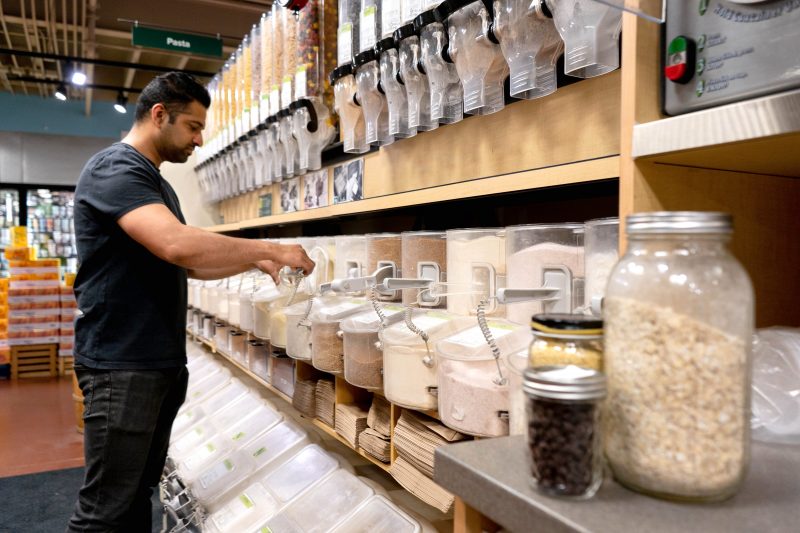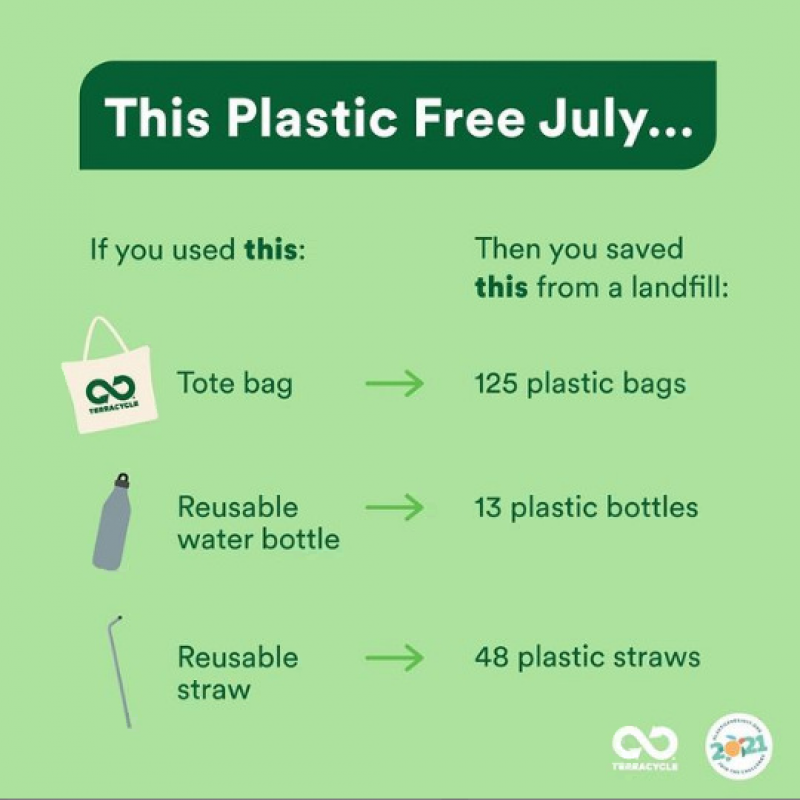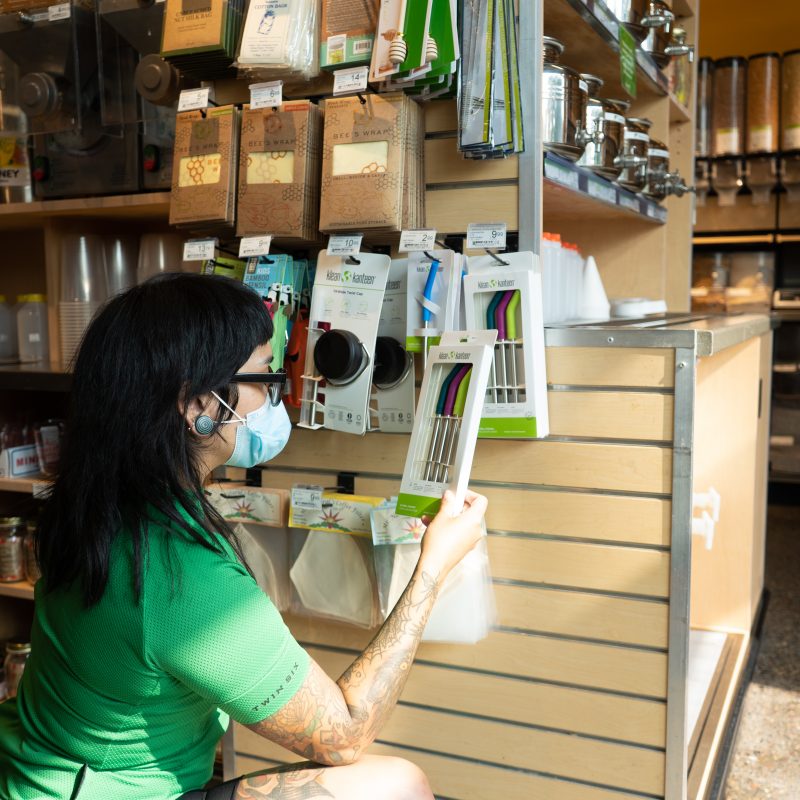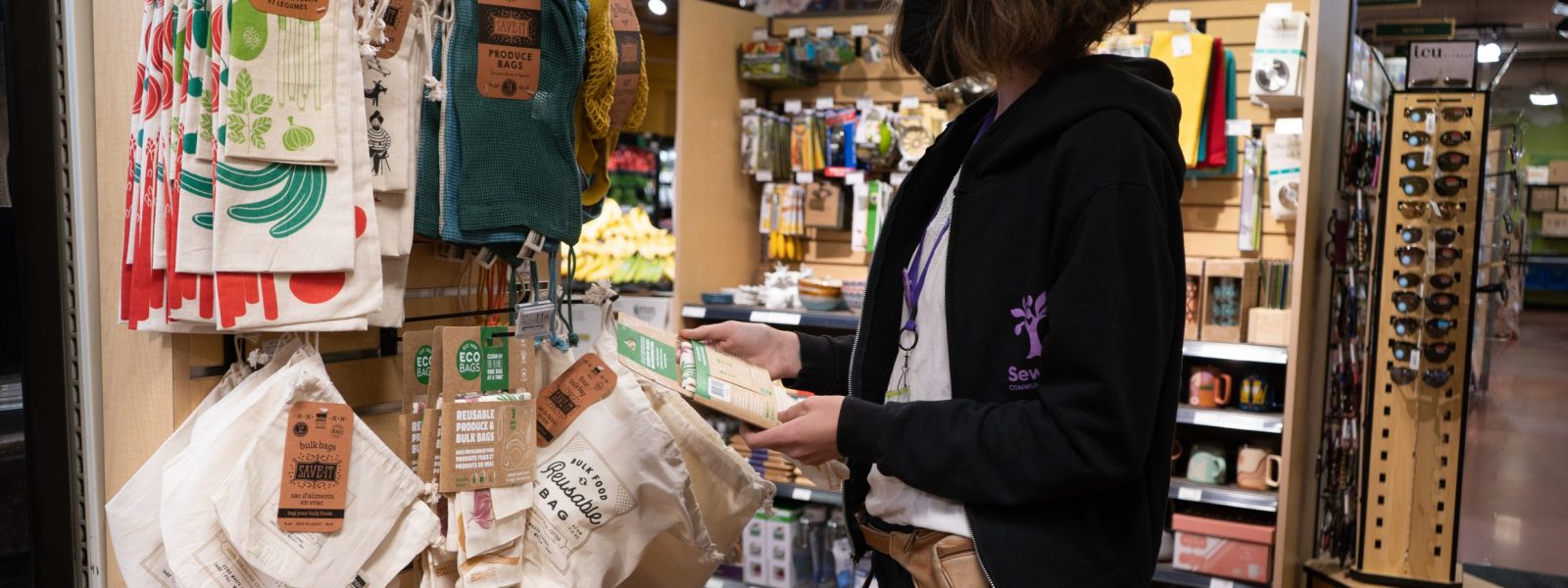 #PlasticFreeJuly is an effort to help millions of people be part of the solution to plastic pollution – so we can have cleaner streets, oceans, and beautiful communities. At Seward Co-op, we’ve recently spotlighted ways to choose to refuse single-use plastics while shopping at our stores. #PlasticFreeJuly will not alone solve the problem of plastic waste. Still, it’s one more important step in the right direction to lessen our environmental impact and promote environmental justice for all. Below are resources to hone your plastic knowledge and plastic-free further advocacy.
#PlasticFreeJuly is an effort to help millions of people be part of the solution to plastic pollution – so we can have cleaner streets, oceans, and beautiful communities. At Seward Co-op, we’ve recently spotlighted ways to choose to refuse single-use plastics while shopping at our stores. #PlasticFreeJuly will not alone solve the problem of plastic waste. Still, it’s one more important step in the right direction to lessen our environmental impact and promote environmental justice for all. Below are resources to hone your plastic knowledge and plastic-free further advocacy.
Plastic Free July Every Day
July 30, 2021

- Video produced by Frontline and National Public Radio, Plastic Wars. “Plastic Wars” explores how, as plastic sales exploded in the ‘90s and 2000s, much of the waste generated was shipped overseas to be recycled in China. But in 2018, responding to its own pollution problems, China closed its doors to imports of plastic waste. “We bought this myth that recycling will solve the problem and we don’t need to worry about the amount of plastic being produced,” said Annie Leonard, executive director of Greenpeace USA.
- Consumptive capitalism, and traditional economic thought around supply and demand, will not manage our planet’s perilous plastic problem. We need laws at all levels of government to compel decision-makers and manufacturers to eradicate single-use plastics. Visit the National Caucus of Environmental Legislator’s website and study legislation related to plastic pollution and environmental justice.
- Recent legislation establishing extended producer responsibility for packaging is a progressive step now on Maine and Oregon coasts. Under these types of laws, packaging producers will be financially responsible for funding the recycling of their products. Nearly all European Union member states and Japan, South Korea, and five Canadian provinces have similar laws. They result in far higher recycling rates – another important step in the right direction.

- Consider ways to impact procurement of plastic in your workplace, community spaces, and even in local government. Have you studied the city of Minneapolis’ procurement policy and the state of Minnesota’s Office of State Procurement? Learn for yourself whether these large public entities – which annually purchase items totaling millions, if not billions, of dollars – actively minimize plastic in the course of making decisions. Then, raise your voice to those elected to represent you and express the importance of alternatives to plastic. The Plastic Free July website has suggested steps for reducing the amount of single-use plastics in your workplace and other spaces.
